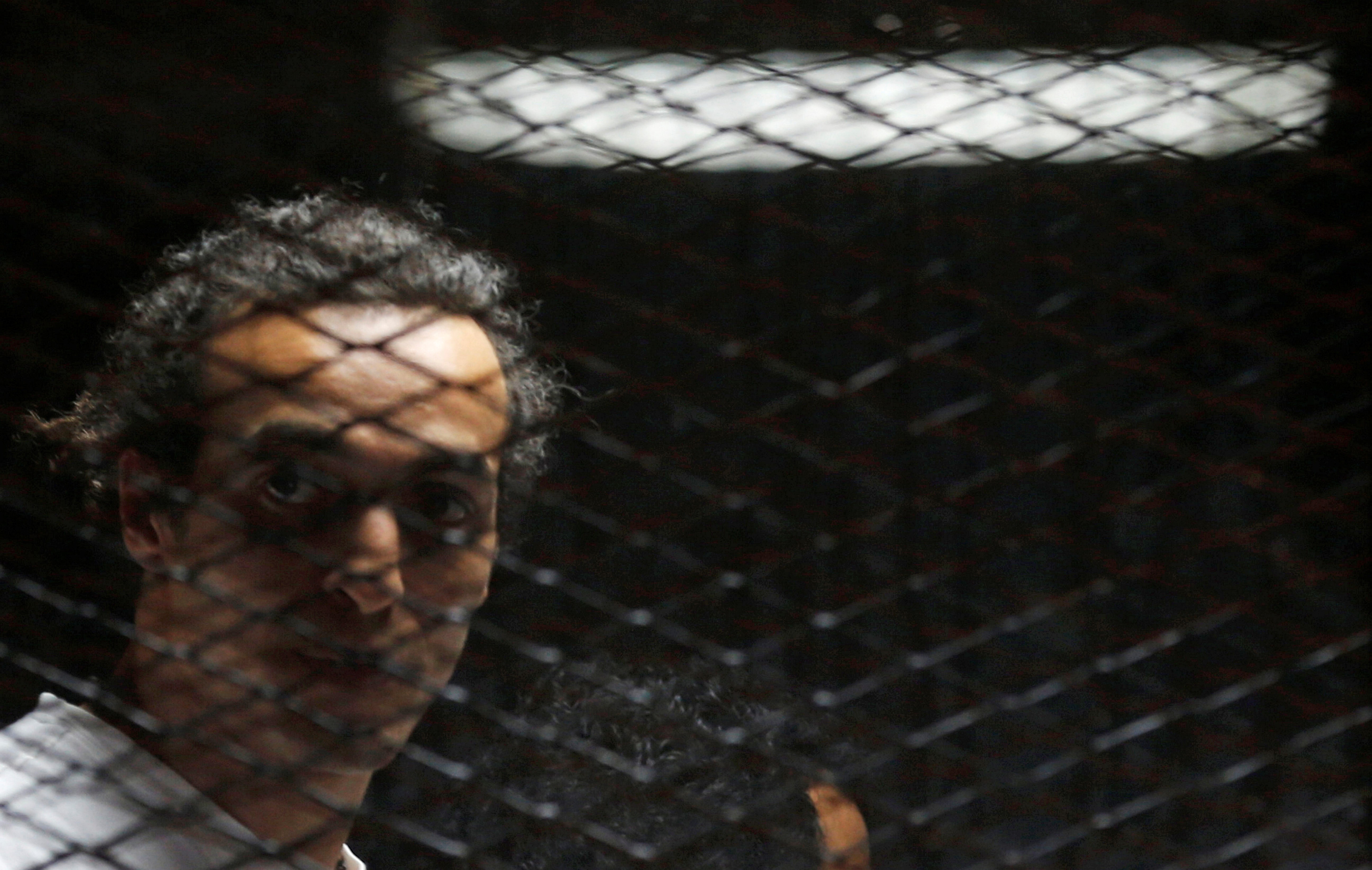Almost four years after being charged, photojournalist still waits in his cell for a court date.
Update: On 30 May 2017, detained photojournalist Mahmoud Abu Zeid Shawkan saw his trial postponed once more to 13 June.
The following statement was originally published on anhri.net on 8 August 2016.
On 9 August 2016, the Cairo Criminal Court will review a new hearing of the case publicly knows as “Raba’a Dispersal”, in which photojournalist Mahmoud Abdel-Shakour Abou Zeid, one of the recipients of the Committee to Protect Journalist (CPJ)’s 2016 International Press Freedom Awards, is involved. Abou Zeid has been held on remand since his arrest on 14 August 2013. Abou Zeid, also known as “Shawkan”, was arrested on the job while covering the dispersal of a sit-in staged by Muslim Brotherhood supporters in Raba’a al-Adawiya Square. That dispersal is now known as the Rabaa massacre.
Shawkan is facing 12 different charges with penalties leading up to a possible death sentence. Most prominent of the charges are murder, attempted murder, participating in a gathering, and joining the Muslim Brotherhood, an organisation declared a ‘terrorist group’ in July 2013.
On 14 August 2013, Shawkan was covering the authorities’ brutal dispersal of the demonstration for the Demotix agency, which he was working for at the time. He was randomly arrested together with a number of foreign journalists also covering the incident. The foreign journalists were soon released, but Shawkan remained in detention. His camera equipment was seized and he was held for a whole day with hundreds of people in a Cairo stadium before being referred to the New Cairo police department, where he was subjected to torture and mistreatment. The accusations over which he appeared before the Public Prosecution were trumped up against him, and after being subjected to interrogation without informing his lawyers, the prosecution ordered Shawkan’s pretrial detention. He has been remanded in prison ever since.
Despite the fact that Shawkan has exceeded the two-year maximum period of pretrial detention determined in Article 143 of Egypt’s Code of Criminal Procedure, the Public Prosecution refuses to respond to ANHRI’s lawyers’ demands to release him. They turned a blind eye to the implementation of the law that makes his release obligatory because of the annulment of the preventive detention order issued against him. The photojournalist was then brought to trial while he was on remand. The same matter was repeated when his lawyers submitted a memorandum to the head of the Court of Appeal demanding their client’s release. Their request was disregarded.
Shawkan, who will have spent three years in pretrial detention on 14 August 2016, is suffering from [Hepatitis] Virus C and in need of medical care that is not available in Tora Prison where he is being detained. Because he hasn’t been receiving proper medication on a regular basis, he will begin seeing a deterioration in his health condition.
“Pretrial detention has been used as a punitive measure and an alternative to administrative detention as well as a means to silence journalists and opinion makers. There is no evidence that may convict Shawkan, nevertheless, he has already been punished by serving three years in pretrial detention, and he is still being punished; as it is expected that the trial in which 739 defendants are prosecuted will be prolonged. Even if he was declared innocent, he has actually received punishment,” stated ANHRI.
ANHRI calls for the swift implementation of law and justice. It also demands Shawkan’s release, a man who has languished unjustly behind bars without being charged for three years simply for doing his job.



